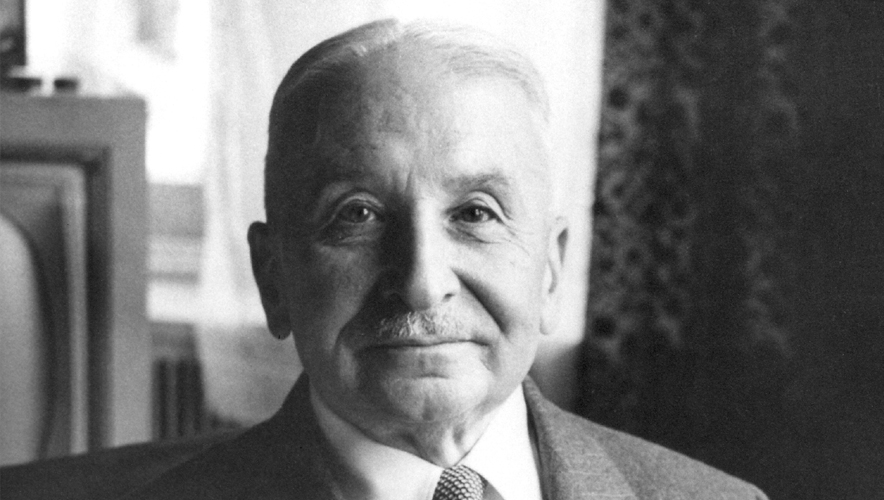University River
In William Blake’s hymn Jerusalem, the phrase ‘those dark Satanic mills’ was assumed to refer to the cotton and woollen mills of his time and their terrible working conditions.
Based on the date of the hymn and Blake’s religious background, many question whether he was referring to the Dickensian factories and cotton mills at all, but rather to the universities of Oxford and Cambridge.
Blake was scathing of universities. He loathed them. He saw them churning out, factory-like, a new godless world.
“I will not cease from mental fight”, he writes in a subsequent verse.
These elite establishments, he considered, were incapable of mental fight.
Fast forward to December 2023 and United States Congresswoman Elise Stefanik asking a number of University Presidents at a Congressional hearing whether “calling for the genocide of Jews breached their university’s codes of conduct on harassment and bullying?”
Staggeringly, each of the University Presidents – including Harvard University President Claudine Gay – refused to answer in the affirmative, saying only, “When speech crosses into conduct, we take action.”
“It would depend on the context,” she added.
In other words, only when Jews are actually murdered would the university step in!
The reluctance of universities to confront what is happening to Jewish students is shameful.
Similar responses were given by the other University Presidents, which would no doubt be mirrored by responses from some of Australia’s elite universities were they to be asked the same question.
‘Satanic’. ‘Incapable of mental fight’. Exactly what Blake was referring to.
The above exchange is what one might call a ‘shibboleth’.
In his excellent book Blink!, Malcolm Gladwell describes how it is possible to weigh up situations in the ‘blink’ of an eye.
In other words, how to make good decisions in an instant by doing what he calls ‘thin slicing’. Thin slicing can be likened to slicing a big salami, and no matter how thinly you slice it, everything you want to know about the whole salami is in that one slice.
Often you don’t have time to study or research an organisation or a person; you have to analyse what is going on by finding that ‘thin slice’. That shibboleth.
Shibboleth is a Hebrew word meaning ‘stream.’ It is referred to in the Old Testament book of Judges, where Jephthah and the men of Gilead fought the Ephraimites and captured the Jordan River crossing. As people crossed the river, to distinguish who was friend from foe, they had everyone say the word ‘shibboleth’. If they couldn’t pronounce it properly, they knew they were the enemy. From this, the word shibboleth was absorbed into the English language to describe a key identifier or a dead give-away.
What we saw in the University Presidents’ exchange was that dead give-away.
Jewish Liberal MP Julian Leeser has said: “I go back to the universities because this is the cauldron where it all starts.”

The reluctance of universities to confront what is happening to Jewish students is shameful. A recent scorecard on incidents of anti-Semitism in Australian universities found that in the last year there had been 56 incidents of anti-Semitism at the University of Sydney, 49 at the University of NSW, 17 at the University of Technology Sydney, 9 at Macquarie University, 7 at the University of Melbourne, and 6 at Monash University. 72 per cent of those surveyed said experiences of anti-Semitism had worsened since the Hamas attack of October 7.
Part of the explanation for this lies with Gramsci’s long march through the institutions to impose Marxist thinking – beginning with the universities. It is where formative minds are indoctrinated.
Once out of university, these graduates disperse into other key institutions – the law, politics, media, business – where Marxist ideology soon takes hold.
It was once the case that occupations such as nursing, teaching and journalism were learned ‘on the job’ – on the hospital ward, in the classroom, doing the rounds of the courts – supplemented by part-time study. Journalism, in particular, was considered more of a trade than a profession.
Not anymore. Now, they all go to university first.
Calling for the genocide of Jews breached their university’s codes of conduct on harassment and bullying?
Sometimes, when a regime has been in place for a very long time, it is not possible to break through that system. Over time, institutions – such as the public service or the industrial relations system or higher education – become adept at building up defences and seeing off zealous reformers.
The only option is to break with it.
Employers should be encouraged to hire students with the appropriate aptitude straight from high school and facilitate their continued education in the form of part-time study at industry-specific places of higher learning.
I myself was recruited straight from high school into a materials testing and research laboratory.
Similarly, sponsored employment traineeships and cadetships could be rolled out across all sectors, so as to by-pass the toxic environment that our universities have become.
Let me finish with a story.
A group of hikers was out walking when they chanced upon a river. Their attention was suddenly drawn to a number of young people in difficulties being carried downstream by the river’s strong current.
The hikers immediately jumped into the river and started rescuing the youngsters.
As they pulled them out, they noticed that more and more young people were being swept towards them.
As more youngsters appear, one of the hikers climbed out of the river.
“Where are you going?”, asks one of the other hikers.
“I’m going upstream to find out who is throwing all these kids in the river!”, he replied.
The universities are the river. We have to stop our young ones being thrown in.







